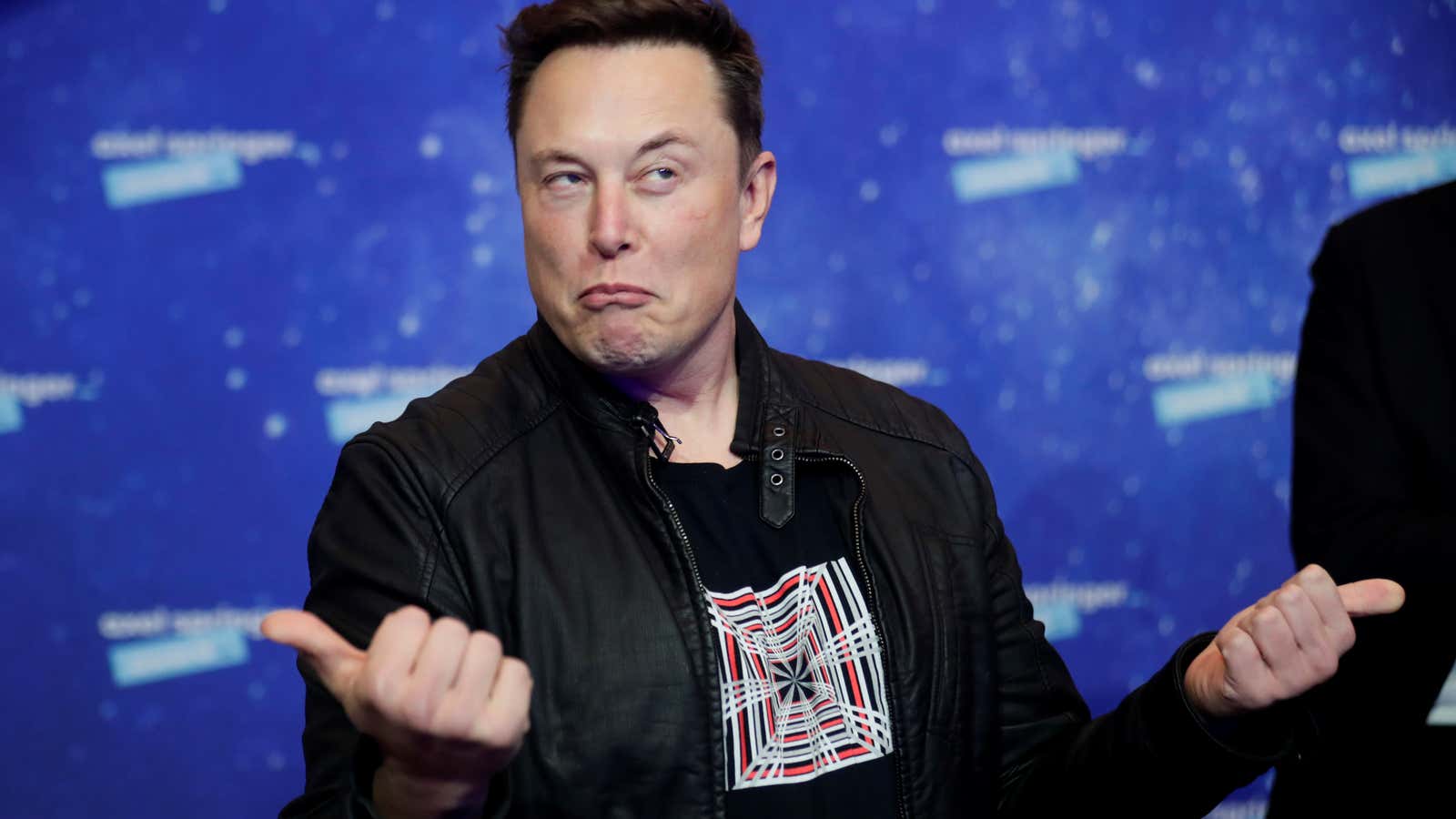It may not seem like Elon Musk is in control of Twitter, but he’s doing exceedingly well at setting the narrative.
Days after instigating a one-sided feud with Apple CEO Tim Cook, and hours after banning his friend Ye from Twitter, saying the rapper’s repeated anti-Semitic tweets constituted a rule-breaking incitement of violence, Musk announced a supposedly ‘must-see’ Friday night event on Twitter.
“What really happened with the Hunter Biden story suppression by Twitter will be published on Twitter at 5pm ET!” Musk tweeted to his 120 million followers.
Enter Musk the dramatist, the playwright, the conductor, the chief programming officer. These are relatively new roles for the world’s richest man, who is used to being Twitter’s main character—its simultaneous protagonist and antagonist—but not its director. Now that Musk is in charge, he’s effectively selling tickets to his own play.
For his latest act, Musk dug up old emails from former Twitter employees, leaked them to the journalist Matt Taibbi, and lit users’ news feeds aflame. Social media websites like Twitter have always profited off outrage, but not usually outrage set off by their proprietors. Whatever his other mistakes with Twitter, Musk showed a certain canniness about the platform in this event—a shrewd knowledge that people come to Twitter to get angry, or to witness other people’s anger.
Still wrestling with Twitter’s revenue strategies, Musk is turning to what he knows best: he’s posting, he’s digging for dirt, he’s rage-baiting, and, yes, he’s starting shit.
Elon Musk’s “free speech” spectacle
Musk has painted himself as the savior of free speech and Twitter’s former executives as a band of left-wing trigger-happy censors. “This is a battle for the future of civilization. If free speech is lost even in America, tyranny is all that lies ahead,” Musk tweeted on Nov. 28. That same day, he ran a trailer of what he dubbed the Twitter Files:
If Musk’s earth-shattering news event had been legit, he would have been vindicated. He and Taibbi purport that the leaked emails show collusion between powerful political actors, namely the former Biden campaign and Democratic National Committee, and Twitter to stop the spread of a New York Post story with damning revelations about Biden’s son ahead of the 2020 presidential election. In reality, it was much less dramatic.
Twitter’s New York Post saga has been long litigated in the court of public opinion. In brief: Twitter employees limited link-sharing of the Post story out of concern that the contents ran afoul of Twitter’s own “hacked materials” policy, which prohibits tweeting out information obtained through any form of hacking. In the aftermath, and amid bipartisan criticism for the move, former Twitter CEO Jack Dorsey called the decision a “total mistake.”
A difficult content moderation decision
But the Twitter Files don’t show malfeasance; rather, they show internal clashes. “While Musk might be hoping we see documents showing Twitter’s (largely former) staffers nefariously deciding to act in a way that helped now-President Joe Biden, the communications mostly show a team debating how to finalize and communicate a difficult moderation decision,” Jacob Kastrenakes wrote in The Verge.
Twitter didn’t violate anyone’s First Amendment rights. It cannot do that; only the US government can violate First Amendment rights. Further, it wasn’t coerced by the US government to violate First Amendment rights. It was asked by the Biden campaign and the Democratic National Committee, neither of which were the government, to make this decision.
In fact, as a private company, Twitter enjoys its own First Amendment right to free speech, which covers its editorial decisions about how to moderate content posted by users on its website. By making the call about the New York Post story—whether you agree or disagree—Twitter was exercising that right.
Elon Musk’s spectacle isn’t over
Musk might or might not know what the First Amendment does. But he’s trying to tap into the broader vibes of free speech, whether or not they’re grounded in legal reality. He’s pandering to an audience that believes that Twitter has such a chokehold on modern speech, and that preventing anyone from having an account or posting constitutes an affront to free speech.
And the spectacle isn’t over: Musk is promising more Twitter Files. “Tune in for Episode 2 of The Twitter Files tomorrow!” he tweeted on Dec. 2. The next day, he followed up: “Looks like we will need another day or so.” Nothing has dropped till date.
After kicking Ye off and boasting about the Twitter Files on Dec. 2, Musk tweeted, “You know Twitter is being fair when extremists on [the] far right and far left are simultaneously upset!” By ticking off everyone, Musk might be able to make everyone on the website upset enough to keep posting, keep scrolling, and keep replying. He doesn’t have to be right—in fact, it may pay to be wrong. Sure, Musk is putting on a bad production, but he’s selling both the tickets and the tomatoes.
